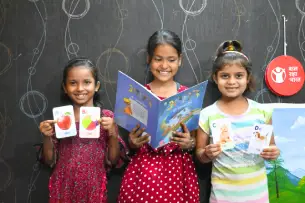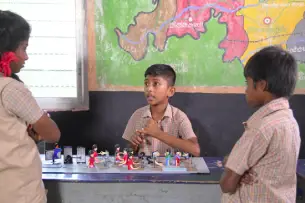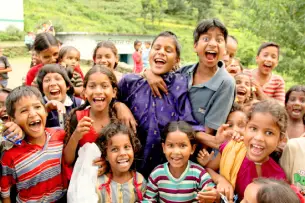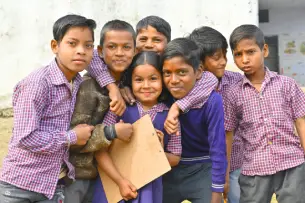
Status of Girl Safety in Bihar, Why We Must #AllyUpForHer
Bihar’s journey toward ensuring the safety and empowerment of its girls has been defined by consistent efforts, careful policymaking, and…
Read More
Drone That Delivers Lifesaving Supplies to Disaster-Hit Communities Dispatched to Government
A drone that can deliver food, water, and medical supplies to hard-to-reach communities in Himachal Pradesh, northern India, was handed…
Read More
SSMA and Bal Raksha Bharat collaborate for child-centric disaster management in Himachal Pradesh
Shimla (Himachal Pradesh) [India], July 5 (ANI): The State Disaster Management Authority (SDMA) of Himachal Pradesh and Bal Raksha Bharat…
Read More
What is United Nations Convention on the Rights of the Child the (UNCRC)
Understand UNCRC (United Nations Convention on the Rights of the Child) 1989 was a historic year for the movement aimed…
Read More
Prioritize Action over Action Plans to tackle Climate Emergency: say Young Changemakers as they meet Canadian Environment Minister
~ Minister Steven Guilbeault will carry their asks to global leaders ahead of the G20 Meet ~ [New Delhi, 27th…
Read More
Save the Children India unveils its ‘Bharat’ Logo; Rebrands as Bal Raksha Bharat
– Localising its Vision & Mission, it will work on Targeted Solutions & Deeper Community Engagement New Delhi, 20th July…
Read MoreExplore more Resources
Ready to brush up on something new? We've got more to read right this way.






